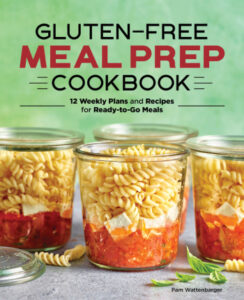There’s a lot of hype in the media lately about over the counter drugs. Do they work? What’s the difference between them? There’s also a lot of myths out there. If one pill will make me feel better, then exceeding the recommended dosage can work twice as well, right? To get the real scoop on OTC drugs and learn how to be an advocate for myself and others in my family, I recently attended a round table discussion with several other bloggers, representatives from Johnson & Johnson McNeil Consumer Care and Dr. Darria Gillespie. My travel expenses were covered by Johnson & Johenson McNeil Consumer Care, but I received no other compensation.

Dr. Darria, who is a graduate of Harvard Medical School, works as an Emergency Room Physician in Atlanta, writes for WebMD, has a podcast on ShareCare, and is an expert speaker on CNN, CNBC, FoxNews Network, and the Dr. Oz show, shared her top tips to help a patient who is in pain.
1. Make a “one sheet” medical chart to carry with you at all times. Write (or type) any prescription drugs or OTC drugs (don’t forget supplements) you take, along with drug allergies. It’s helpful to include what happens when you take the medication to which you are allergic. Do you get hives or does your throat swell up and cause you to stop breathing? Think about what to include on your one sheet before you are in pain because it is easy to forget safety when you are in pain.
2. Never take more than the recommended dose. Did you know there are 28 billion doses of acetaminophen taken in the US each year? Know your dose and never take more than the recommended amount per day. Not only can it cause liver damage, once you have reached the maximum dose you only flood your pain receptors and derive no benefit from the medication.
3. Read the instructions on the bottle whenever you take a dose of OTC medication. Sure, we’ve all read it once, but what if we have a new medical condition since the last time we took the medicine? Or what if we have started taking a new medication that could interfere or should not be mixed? The FTC requires all drug information be on the outer label.
4. Be as honest with your doctor as you are with your Facebook friends. Isn’t it hard to talk to our doctor? Sometimes it is easy to skip over some of the symptoms or to ignore some of our not so great health habits, like lack of exercise. If we do this our doctor doesn’t always see the entire picture and could miss some of the problem or the best way to treat our conditions.
5. Be vigilant about where you get your health care information. It’s great to get advice from friends and family, but do your research as well. What works for one person might not work for another and sometimes people might mistakenly give your wrong advice, causing you to overlook a serious problem.
Since this conference I have reevaluated my medication and health care providers to make sure they work for me. Do you have a chronic health condition that could use a pain management plan?
P.S. Dr. Darria was has also generously shared her new cold and flu season cheat sheet. You can find it here->Cold and Flu Season Cheat Sheet.



Hi Pam,
I don’t know if this is the right section to ask this but I’ll take my chances.
I’ve been suffering from a back injury for months now, and been dosing my self with a lot of pain relievers. I’m starting to think that I might take away the pain of my back with the meds but at the same time punishing my liver slowly. So I started reading articles about marijuana and it’s medical aspect and found this along the way http://www.ilovegrowingmarijuana.com/medical-marijuana-has-profound-effect-on-pain-relief/.
I am already 34 years old and haven’t tried smoking or any other means of using marijuana and I have nothing against it. My question is that if i try it would I be dependent at the same time addicted to it? And will it really ease the pain? Thanks in advance to those who’ll answer
Oh that might be a hard one to tell your doctor things like you do Facebook! Sounds harder than it is but it will help out in the long run!
These are great tips on how to take control of your pain management. Thanks so much for sharing.
These are all great tips. #5 is so true. I like to ask my friends for advice, but always end up doing my own research.
These are great tips. It can be really hard to find a balance but I agree it is important to take control and make time to manage your pain properly.
While I know never to take more than the recommended dose I almost always do. It does more harm that good although it does help at the moment.
Pain management is a very important topic for me as a Leukemia Survivor. Many don’t know how horrible it is to live with pain every single day.
Great tips. Pain management is a constant struggle for me. I need to do better about having a list of my meds with me.
I’m pretty reserved when it comes to taking medication, over the counter or prescribed. But I’ve been really lucky health-wise. After her knee surgeries, my mom was in a lot of pain but I was so impressed with how she handled everything.
These are all good tips. Especially the being honest with the doctor. That is so important.
I say this too, and agree wholeheartedly. But I’ve found myself not wanting to say something too…so I think it’s very important to find a dr. you trust.
Such important tips! I always write down on a sheet when I take my meds and make sure that I never take more then recommended.
Really great tips! I think only taking the recommended dose needs to be re-told to a lot of people I know. It doesn’t help to over medicate so while all of these are important I think that one really is!
These are great tips. Being honest with your doctor is very important.It’s the easiest way for him to help you.
These are such an smart advice, I wanna follow a good advice sometimes and I think this is the best.
I’ve noticed as I’ve gotten older I’ve had more pain. This is good to know.
These are all great tips. I need to follow them because my pain management is necessary and vital for my overall health and I need to get better control over it.
Wow! Such great tips from a seasoned professional. I love the idea of bringing a sheet with your medications with you.
These are really helpful. Always keeping good documentation is important and I can see how leaving things out could affect how the doctor proceeds with treatment.
These are great tips, although being as honest with your doctor as your Facebook friends is pretty funny. Most people only share one side of the story on FB, just like their doctor.
Great tips! Honestly with the doctor really is key to getting the best treatment. I’ve been guilty of skimming over facts for fear of judgement of my doctor in my younger years, but I disclose everything now!
These are great tips – and so important. Medication is nothing to fool around with.
it’s tough to find the balance when it comes to pain control. These are great things to consider
great tips to share. I know so many people who take too much medicine just because their “pain is really bad”. I try to tell them that’s a horrible idea but some people just don’t listen.
These are great tips. You should never exceed the recommended dose of over the counter or prescription pain meds. It doesn’t do any better of a job, and it can hurt your organs.
I think #5 is key! It’s so easy to hop online and search a symptom…you’ll think you’re dying within 5 minutes LOL